Timely institutionalization of major policies on organization and streamlining
Contributing opinions at the conference, delegates all agreed that amending and supplementing a number of articles of the 2013 Constitution is urgent, aiming to promptly and fully institutionalize the Party's major policies on arranging and streamlining the apparatus in the political system.
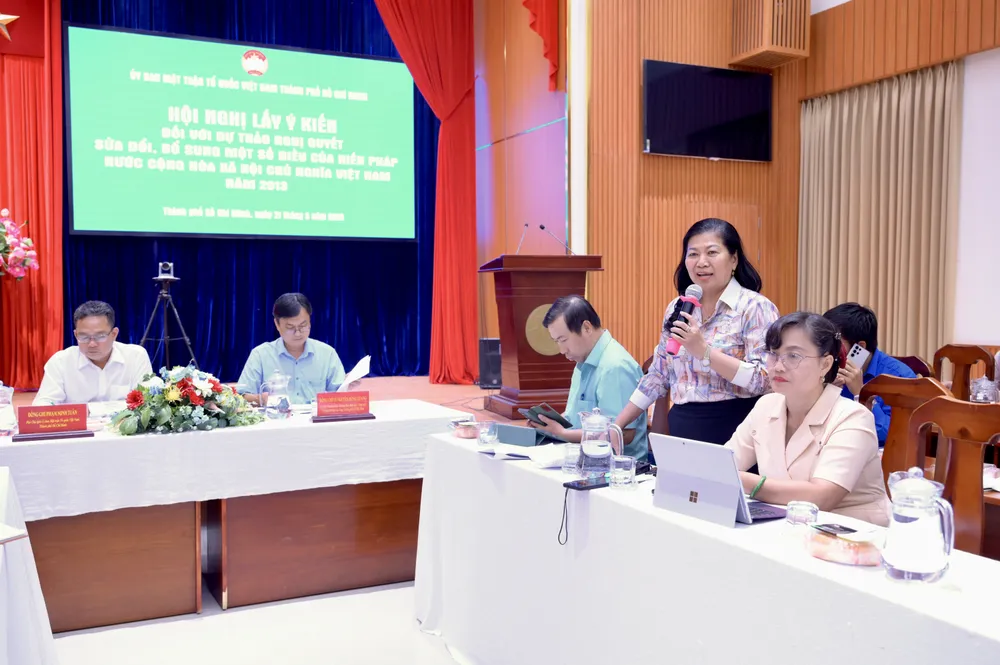
Along with that, the reorganization of socio-political organizations and mass organizations under the Central Committee of the Vietnam Fatherland Front is identified as an important step to improve operational efficiency, increase connectivity, unity and practicality. At the same time, it ensures the good performance of the role of representing and protecting the legitimate and legal rights and interests of the people.
A key content discussed was amending and supplementing Article 110 of the 2013 Constitution, aiming to institutionalize the consistent policy of the Party and State on streamlining the organizational apparatus and improving the operational efficiency of local governments in new conditions.
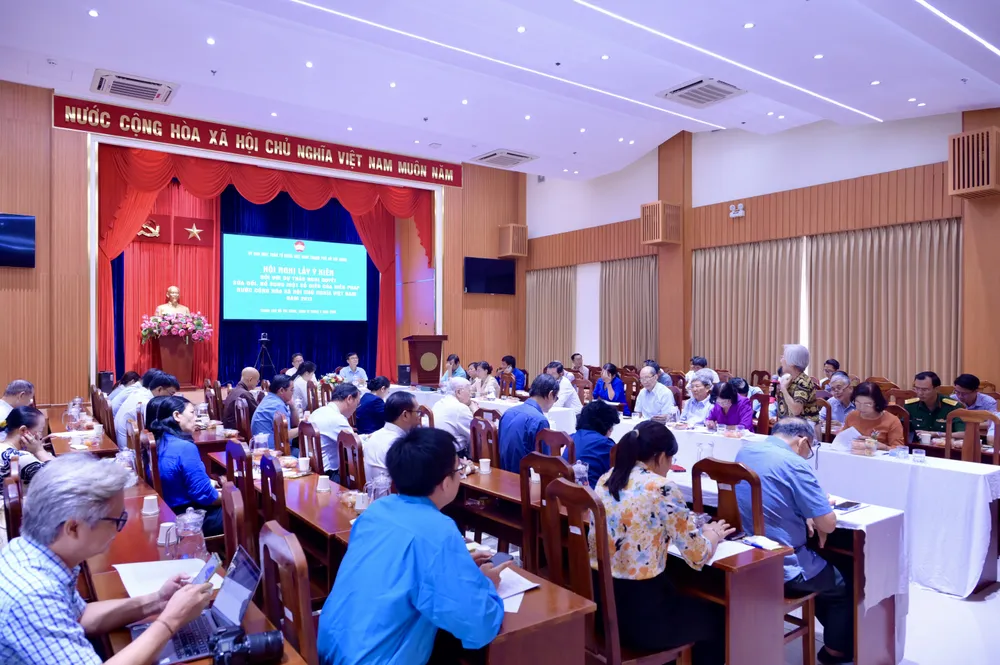
According to lawyer Truong Thi Hoa, Vice President of the Ho Chi Minh City Commercial Arbitration Center, Vice Chairman of the Advisory Council on Democracy and Law, Vietnam Fatherland Front Committee of Ho Chi Minh City, currently, administrative units (ADs) in our country have been operating according to a three-level model: provincial level, district level and commune level, in which the district level only plays an intermediary role, which is no longer suitable for modern governance requirements and the national digital transformation trend. Therefore, reorganizing the 2-level local government model is appropriate, helping to improve the effectiveness of state management and close to the grassroots level.
Agreeing on not specifying administrative units below the province or centrally-run city to ensure flexibility when there are changes and adjustments to administrative units, without having to amend or supplement the Constitution, Ms. Ung Thi Xuan Huong, President of the Ho Chi Minh City Lawyers Association, Head of the Advisory Council on Democracy and Law, Vietnam Fatherland Front Committee of Ho Chi Minh City proposed to clarify the model of local government organization including 2 levels: provincial level and grassroots level, ensuring clarity and transparency. Based on the specific nature of each locality, it is possible to organize or not to organize the People's Council - People's Committee or People's Committee.
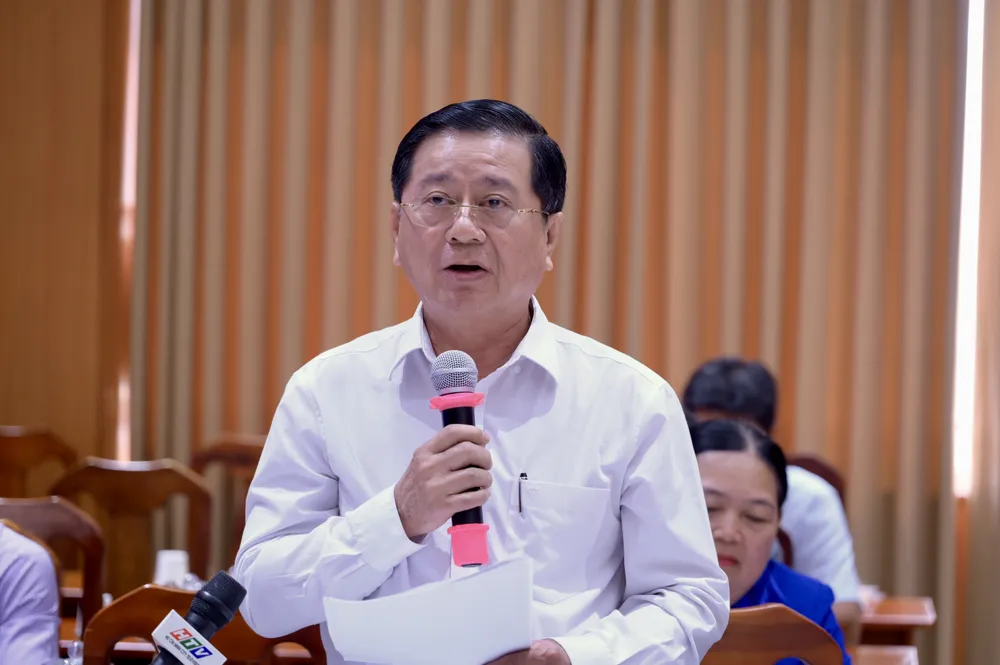
Lawyer Nguyen Van Hau proposed to interpret Clause 1, Article 110 in a way that clearly defines only two administrative levels: provincial level and grassroots level. The specific name of the grassroots level (commune, ward, town, special zone...) will be determined by the Law on Organization of Local Government.
In addition, the lawyer suggested that it is necessary to clarify and unify the use of the terms "Special administrative- economic unit" and "special zone" in the legal system. It is important that the upcoming Law on Organization of Local Government (amended) needs to have clear and scientific criteria for classification, establishment, and merger of administrative units, taking into account specific factors and avoiding subjectivity.
Avoid affecting people during transition
Regarding the transitional regulations when rearranging administrative units, Lawyer Nguyen Van Hau said that the transitional regulations need to ensure comprehensiveness, detail, and feasibility so that the political system operates smoothly and people's lives are least affected.
Regarding the termination of the operation of district-level administrative units, there should be specific regulations on the process and deadline for handing over work, records, finances, public assets, and staffing. At the same time, it is necessary to clarify the mechanism for inheriting legal rights and obligations, resolving complaints, denunciations, disputes, and unfinished cases, as well as affirming the validity of documents issued by the district level.
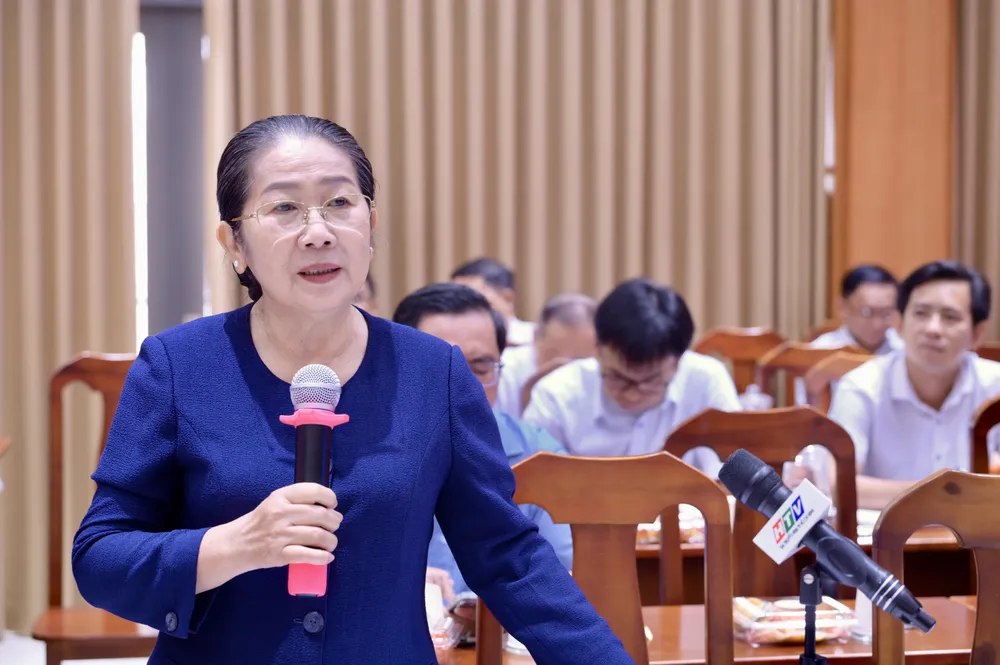
For the settlement of administrative procedures, there should be specific instructions on the transfer and receipt of files being processed at the district level, and the public announcement of the new location and processing agency to avoid causing trouble and shirking responsibility.
In particular, the issue of adjusting information on documents of citizens and organizations when changing administrative units needs to have very favorable transitional regulations. It should be affirmed that old documents are still valid, adjustments should only be made when requested or issued, renewed, and at the same time, research the roadmap for mass issuance, free or reduced fees.
Regarding personnel, in addition to appointing leadership positions during the transition period, there should be a comprehensive and humane policy to arrange and resolve the regime for redundant cadres and civil servants at the district level. In addition, allowing the appointment of non-People's Council delegates to hold leadership positions of the People's Council also needs careful consideration.
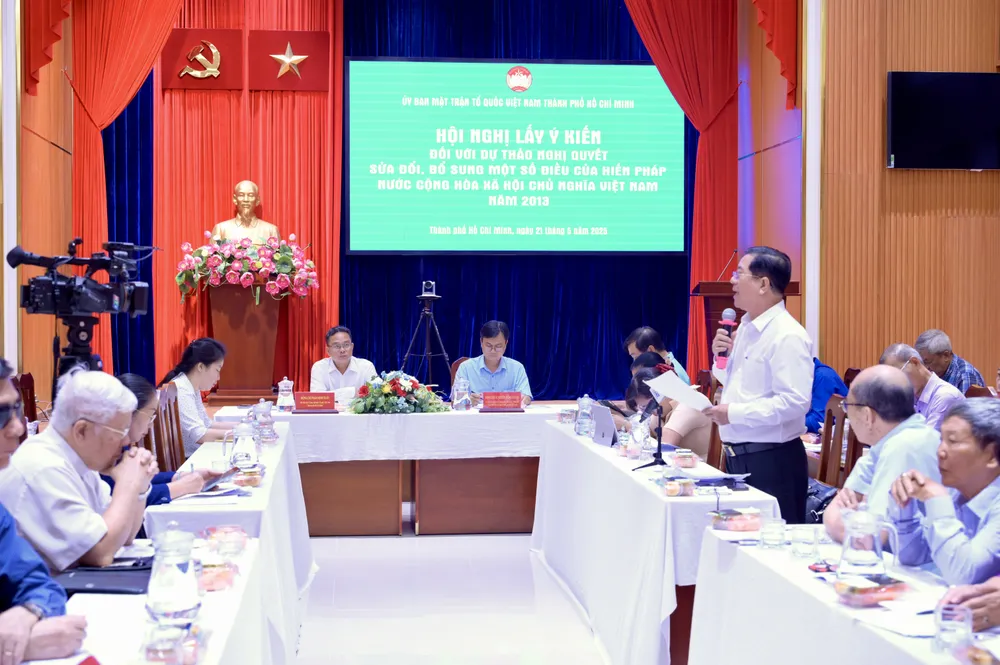
Also contributing ideas on personnel regulations, former Deputy Secretary of the Ho Chi Minh City Party Committee Vo Thi Dung suggested adding specific clarifications to "special cases, allowing the appointment of personnel who are not People's Council delegates to hold leadership positions of People's Councils at the provincial and communal levels formed after the streamlining of the local government apparatus", instead of the provision in the draft that "special cases allow the appointment of personnel who are not People's Council delegates to hold leadership positions of People's Councils at the provincial and communal levels formed after the streamlining".
Affirming the central role of the Fatherland Front
Regarding the content of the regulation on large socio-political organizations under the Central Committee of the Vietnam Fatherland Front, lawyer Nguyen Van Hau said that this regulation aims to help unify and coordinate activities under the chairmanship of the Central Committee of the Vietnam Fatherland Front, which is a fundamental change, in line with the policy of streamlining the apparatus and overcoming overlaps.
This not only affirms the central role of the front but also clarifies its core functions and tasks such as gathering, uniting, representing, protecting people's rights, implementing democracy, supervising, providing social criticism, and participating in Party and State building.
However, to maximize the combined strength without losing the initiative and specificity of each member organization, the mechanism of "chairing" and "unifying action" needs to be specified. In particular, the function of social supervision and criticism needs a mechanism to ensure stronger implementation effectiveness, overcoming the existing formalities and evasions.
It is important to establish an effective legal mechanism to ensure that the recommendations after supervision and criticism of the Central Committee of the Vietnam Fatherland Front are received, explained and seriously handled by state agencies. It is possible to consider adding regulations on the responsibility to monitor, urge and recommend handling of responsibilities to Article 9 of the Constitution or specialized laws, specifically the Law on the Vietnam Fatherland Front and the Law on Trade Unions. At the same time, it is necessary to clearly define the responsibility of state agencies to provide necessary information and ensure resources for the activities of the Central Committee of the Vietnam Fatherland Front.
Source: https://www.sggp.org.vn/uy-ban-mttq-viet-nam-tphcm-to-chuc-lay-y-kien-gop-y-sua-doi-hien-phap-nam-2013-post796181.html


![[Photo] Determining the pairs in the team semi-finals of the National Table Tennis Championship of Nhan Dan Newspaper](https://vphoto.vietnam.vn/thumb/1200x675/vietnam/resource/IMAGE/2025/5/21/eacbf7ae6a59497e9ae5da8e63d227bf)

![[Photo] Prime Minister Pham Minh Chinh receives Rabbi Yoav Ben Tzur, Israeli Minister of Labor](https://vphoto.vietnam.vn/thumb/1200x675/vietnam/resource/IMAGE/2025/5/21/511bf6664512413ca5a275cbf3fb2f65)

![[Photo] Scientific workshop "Building a socialist model associated with socialist people in Hai Phong city in the period of 2025-2030 and the following years"](https://vphoto.vietnam.vn/thumb/1200x675/vietnam/resource/IMAGE/2025/5/21/5098e06c813243b1bf5670f9dc20ad0a)
![[Photo] Prime Minister Pham Minh Chinh receives the President of Asia-Pacific region of PowerChina Group](https://vphoto.vietnam.vn/thumb/1200x675/vietnam/resource/IMAGE/2025/5/21/0f4f3c2f997b4fdaa44b60aaac103d91)
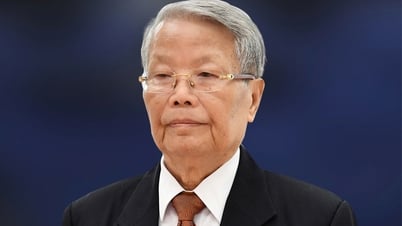

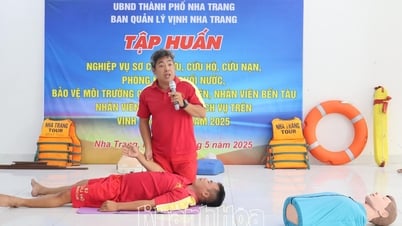

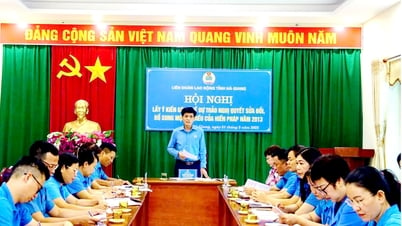

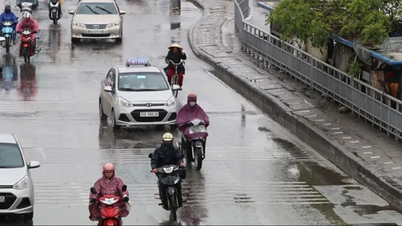
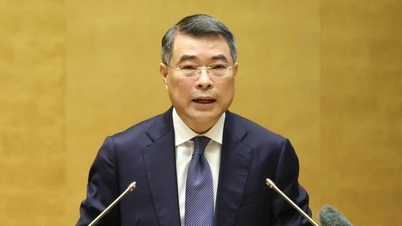







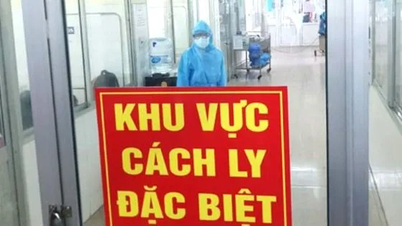


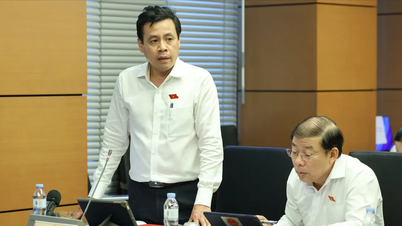
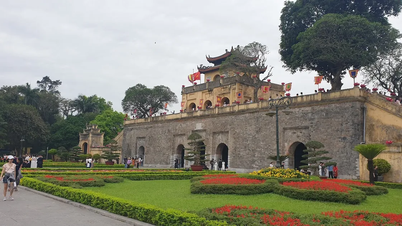
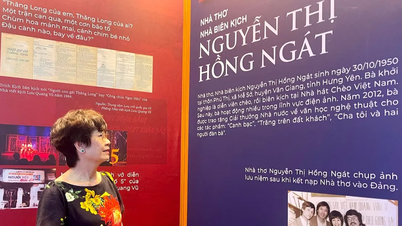






























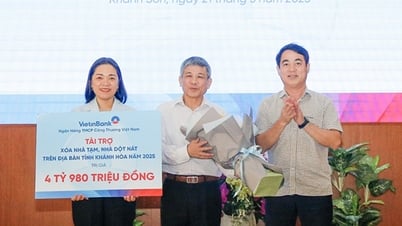


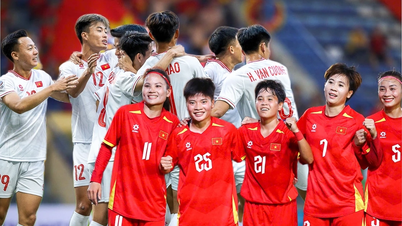

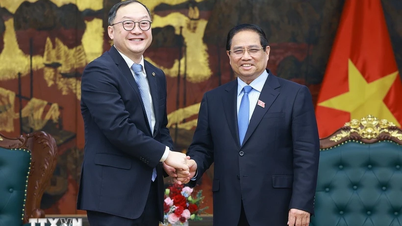





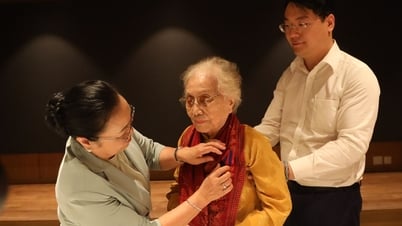

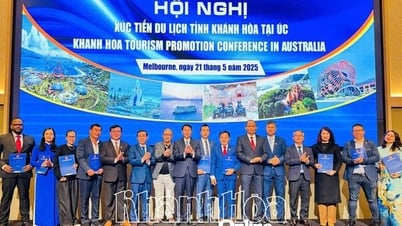
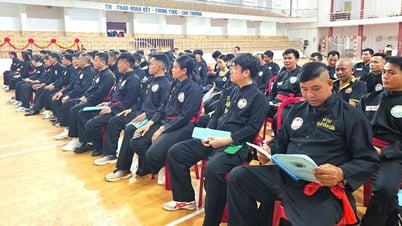





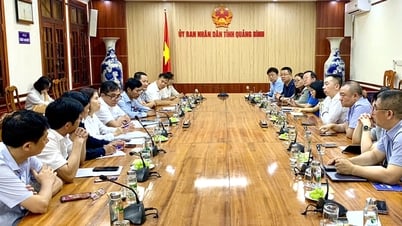

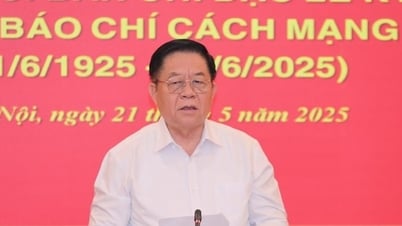










Comment (0)